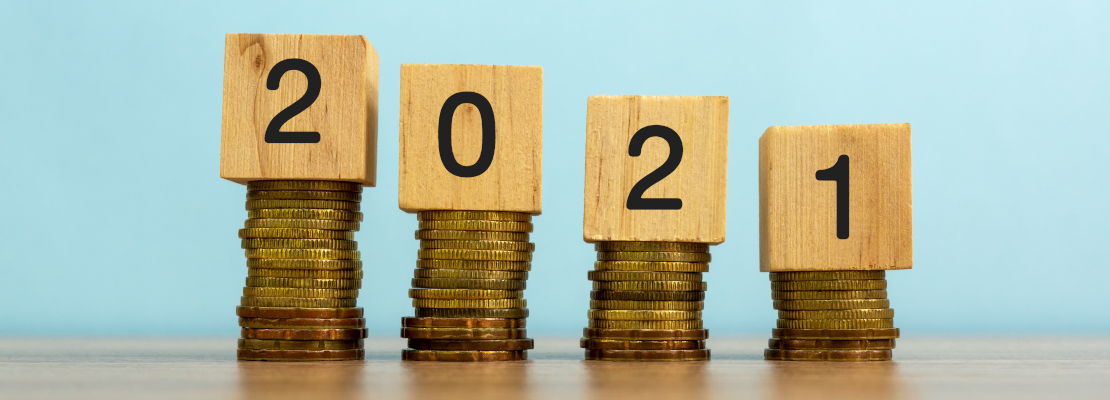Happy new year! Welcome to 2021, a new year filled with hopes, goals and plans for this year and beyond. As people around the world have been making resolutions and deciding what will be different for them in the new year, it’s vital to not leave out our goals and plans for our finances, and how they will be used to benefit ourselves and others. Working on your finances at the start of the year may not be the most enjoyable activity for some, but it isn’t time that's spent—it’s time that is invested in helping make our lives and the rest of this year better. Well-managed personal finances can contribute to making this year a good year. Following are a few activities that you might want to undertake that could help prepare your finances for the new year:
- Collect and organize your financial records. Before you can be certain of where you're going, it is useful to make certain that you are fully aware of where you’ve been. Pull together your checking, savings, and investment account records for 2020 so you have a complete view of your total income and expenses for the past year. As a bonus, getting all this information in one place means that you’re already prepared to start your 2020 taxes later this year; please make a note that information on the availability of our members' 2020 tax documents from Delta Community will be highlighted in this blog in coming weeks.
- Review and adjust your annual budget. First divide the budget into necessities and things that are not necessary but that you’d like to have/accomplish. Highlight all costs you can stop immediately should you have a reduction or loss of income. Also separate big-ticket items and consider whether this is the year to spend on them—this could include a new car, house repairs or enhancements, or a nice vacation. Delta Community's handy Online Banking budgeting and spending tool can help you get a clearer view of your financial history for the past year.
- Review and modify your long-term financial goals. Think about goals such as retirement, paying off a mortgage, buying a second home, paying for a child’s college education, and long-term healthcare needs—along with other goals—and decide if you need to make changes in your goals or in your actions for meeting them.
- Pay off as much debt as you are able, such as credit card debt, loans, and even your mortgage. It may not be possible to pay off more of your debt than you’re already paying, but consider what you might be able to do by using your current assets to reduce debt. It might make good, practical financial sense to take out a car loan, personal loan, or home equity line of credit and use the loan to pay off other debt that has a higher interest rate—and then you have more money available to pay off the new loan.
- Consolidate, close or open financial accounts. As people go through their lives, it’s common to open a variety of financial accounts from different providers, and it’s also common to have left-over accounts that are not in regular use. Use the beginning of the year to consolidate, close or open accounts, so that the remaining accounts efficiently meet your needs.
- Review your auto, home, life or other insurance policies to see if they need to be changed. Your insurance coverage can be decreased, increased, stopped, or, after comparing costs, you may want to switch insurance carriers. But do your research and find out if a different insurance policy can lower your costs and provide similar (or better) coverage. You may also be able to negotiate a lower rate for car or home insurance with the same amount of coverage.
- Consider meeting with a CERTIFIED FINANCIAL PLANNER™ professional to discuss your existing investments, or, if you don't currently have investments, to discuss if now is a good time to explore whether financial investing might be appropriate for you. Delta Community’s CERTIFIED FINANCIAL PLANNER™ professionals are committed to providing our members with thorough advice so they can make informed decisions.
Some people begin the new year with promising resolutions and a lot of good intentions, but it can be a struggle to meet every goal that has been set. Taking time early in 2021 to focus on finances and get ready for the next 12 months (or more) is an important investment in your life that should be a priority, and it's never too early to get started on it.



